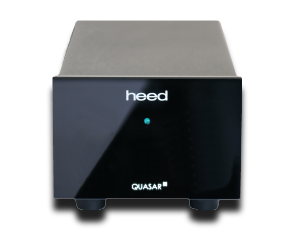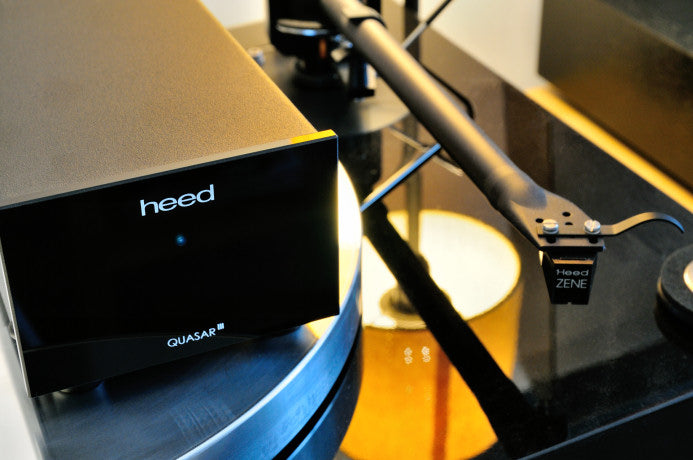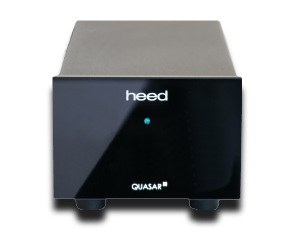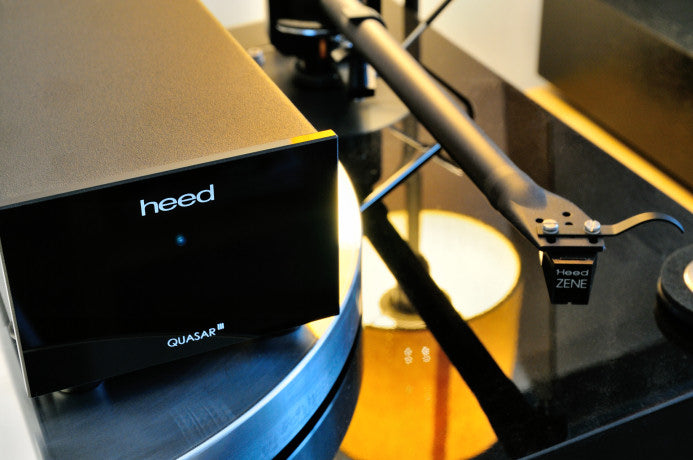Heed
Heed Quasar
Heed Quasar
Couldn't load pickup availability
The signal processing of cartridges is one of the most delicate jobs in amplification. All the more so because it isn’t done merely by boosting a few hundred microvolts to a few hundred millivolts. In fact, at this thousandfold amplification (60 dB) the signal must be processed as cleanly and noise-free as possible. The extremely low signal level and the frequency-dependent amplification which arises from the RIAA equalisation curve applied in the cutting of LPs make the highest demands of the circuit topology and technical realisation of a phono preamplifier.
Heed's award-winning QUASAR phono stage, with its discrete conception and wide range of features, meets the requirements of even top-class turntable/cartridge combinations without being “unreasonable” in the usual high-end fashion.
The QUASAR is built in dual-mono configuration from the power supply upwards. There are two separate amplifier stages for MM and MC cartridges, both being fed from their own regulated power supply arrangement. Optimum adjustments to the MC cartridge in use can be applied for sensitivity and load by various settings of the jumpers on the PCB. The two separate outputs with different output levels make it possible to fine match for preamps or recorders.
The output stage has huge headroom at extremely low noise levels and, due to its low output impedance and high current delivery, can drive long interconnect cables without any sonic degradation.
The enhanced power supply of the QUASAR, the Q-PSU that also can be used as power supply upgrade with other components, is based around a 50 VA toroidal transformer with low-density magnetic field and very little dispersion. This power, together with a fine voltage regulation system, can feed the circuit with the kind of super-clean current usually delivered only by battery-based supplies, even with extreme dynamic swings.
– separated MM and MC input stages
– adjustable MC gain and impedance
– discrete bipolar transistor architecture
– separated power supply (see Q-PSU)
Share




